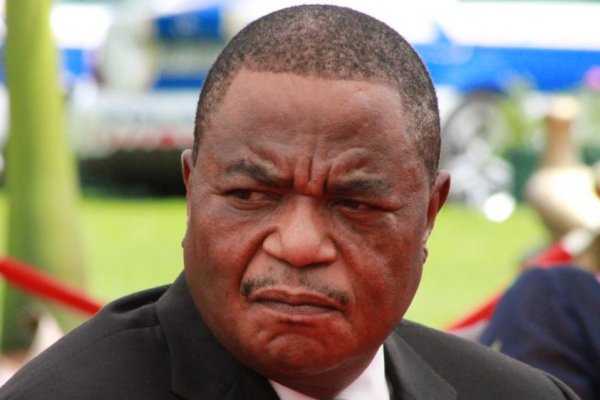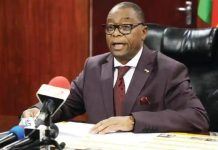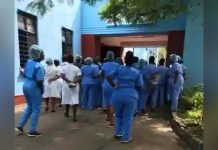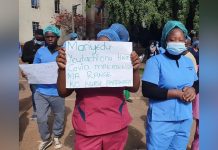ACTING President Constantino Chiwenga yesterday tore into the striking doctors, dismissing them as mere “interns” who had no respect for ethics and berated them for engaging in the job action.
Addressing media after a brief tour of National Pharmaceutical Company (NatPharm) and Parirenyatwa Group of Hospitals, Chiwenga said it was wrong to call them junior doctors before they had completed their studies and charged that he would put it to Parliament for deliberation.
“How can the Health ministry take someone who has not completed studies? We will not entertain wrong things. We cannot call them junior doctors when they have not finished their internship,” he said.
Speaking on the suspension of the doctors, Chiwenga said they had acted outside the law. “We do not condone defiance. The doctors engaged in an illegal strike. That is unacceptable. Those who withdrew their services chose a wrong profession, because if they are doctors, the patient is their priority,” he said.
“You do not withdraw labour in essential services. We ordered them to go back, but they did not listen and the labour court ruled,”
Chiwenga said the government was trying to address the issues raised and would continue to do everything to ensure that all hospitals were supplied with essential drugs. The shortage of drugs was one of the critical issues raised by the doctors, who said it was now difficult to work without the prerequisite medicines.
He said he was not bothered by the comments on social media about the strike since his concern was saving lives.
“The media has been awash with reports that there are no drugs and gloves, but we have them in stock at NatPharm, ready to be dispensed to facilities,” he said.
“We have a good supply of medicines.”
Although acknowledging that there “were a few shortages here and there”, he said steady supplies were coming in.
Responding to questions on how the hospitals would cope without the more than 500 doctors he said he had made arrangements with the Higher and Tertiary Education ministry to recruit student doctors who had just completed their studies.
“From this weekend, we should start to see a change in the hospitals,” he said.
The Health minister Obadiah Moyo, who accompanied Chiwenga on the tour, said the issue of medicines was being addressed, and they were hopeful it would improve the situation. “Medicines are coming in, and even though it is not 100%, we have to start somewhere,” Moyo said.
Cabinet this month tasked Chiwenga with resolving the ongoing impasse between the State and the striking junior doctors.
In April this year, Chiwenga, in his capacity as head of the social services cluster, summarily dismissed some 16 000 striking nurses after they rejected a plea from government to return to their posts, while negotiations for a salary adjustment continued.
This came after management at most major hospitals also joined the nurses’ industrial action.
Chiwenga, at the time, said the drastic measure was taken after nurses continued with their strike even as Treasury had disbursed $17 114 446 to cover the outstanding salary arrears for nurses.
Chiwenga argued the strike had turned political and government went on to officially fire some 6 000 nurses, only to make an about turn a week later, withdrawing the dismissal letters and also employing more who had been languishing without jobs.






